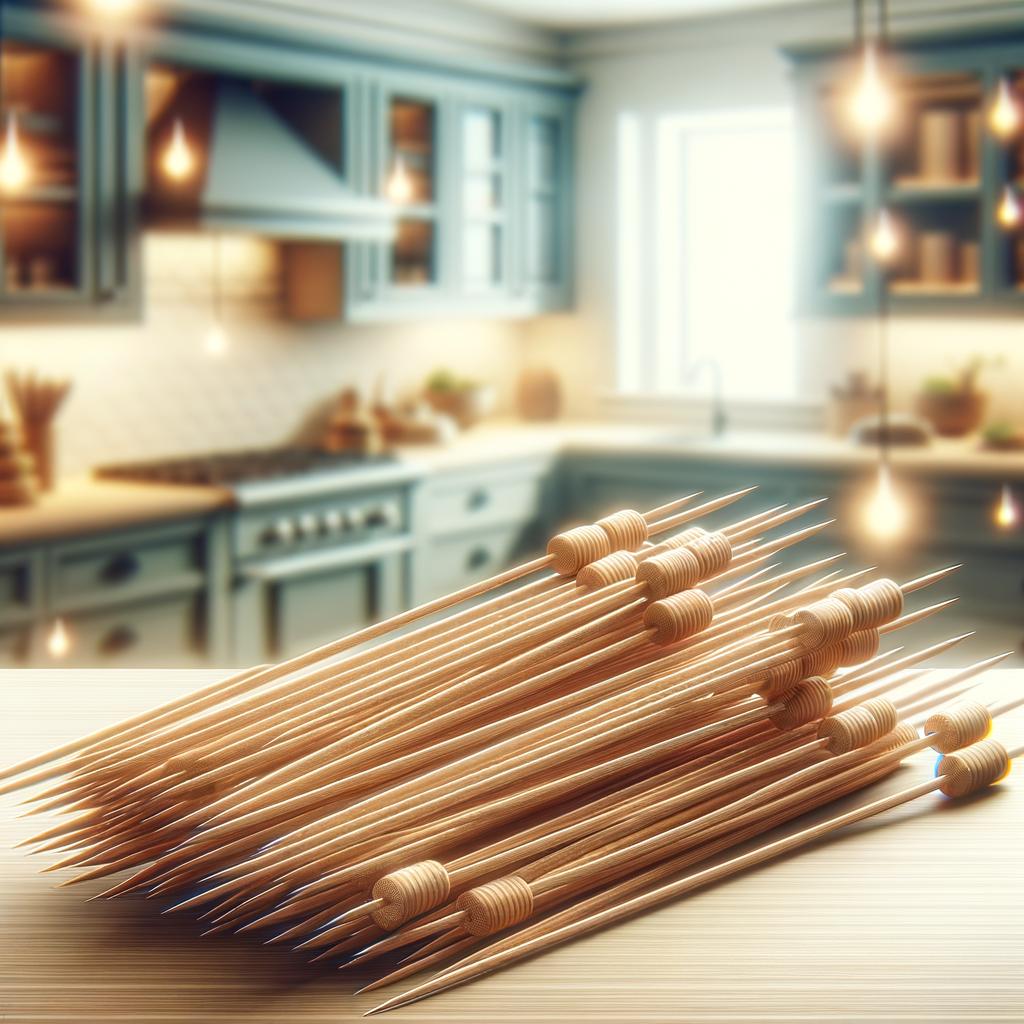Wooden Skewers

Description
Wooden skewers, the unsung heroes of many a culinary delight, are simple yet versatile tools that have been used in kitchens for centuries. They are typically made from bamboo or birch, each skewer a slender, tapered stick that is smooth to the touch and light in weight. Their length and thickness can vary, but most are about 8 to 12 inches long and approximately 1/8 inch in diameter. They are unassuming in appearance, a neutral beige that belies their importance in the culinary world. Though they are tasteless and odorless, their role in shaping the flavor and presentation of food is invaluable. What sets wooden skewers apart from their metal counterparts is their ability to be soaked in water, wine, or broth to infuse additional flavors into the food, and their disposability, making them a convenient choice for outdoor cooking or large gatherings.
Primary Uses
Wooden skewers are most famously used in grilling, where they hold together kabobs of meat, seafood, fruits, or vegetables. They are integral to a wide variety of cuisines, from the sizzling satays of Southeast Asia to the succulent souvlaki of Greece, and the tantalizing tikkas of India. But their use extends beyond grilling. In baking, they're used to test the doneness of cakes and breads. In crafting, they can be used to create edible arrangements or cocktail garnishes. Their cultural significance cannot be understated either, as they are often used in traditional foods during festivals and celebrations in many cultures.
History
The history of wooden skewers is as old as the concept of cooking itself. Early humans likely used sharpened sticks to hold food over fire, making skewers one of the oldest cooking utensils. Their use has evolved over time, from simple cooking tools to an integral part of many culinary traditions. In the Middle Ages, skewers were used to serve food in a visually appealing way at grand feasts. Today, they are a symbol of communal eating and shared experiences. There's a romantic notion to the idea of food cooked on a stick - it harks back to our ancestors, sitting around a fire, sharing stories and meals.
Nutritional Information
While wooden skewers themselves do not provide nutritional value, their use can impact the nutritional profile of the food being cooked. Soaking skewers in flavorful liquids can add taste without the need for additional fats or oils. Grilling on skewers is also a healthier cooking method, as it allows excess fat to drip off the food. When used in crafting edible arrangements or garnishes, they can encourage the consumption of more fruits and vegetables. In comparison to metal skewers, wooden ones are less likely to conduct heat, reducing the risk of accidental burns.

